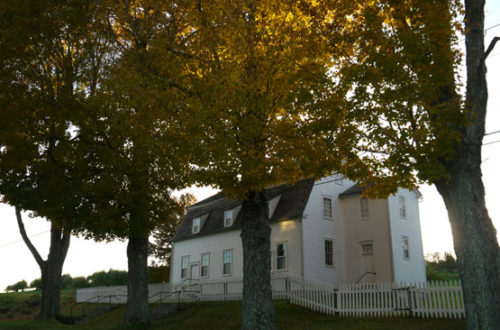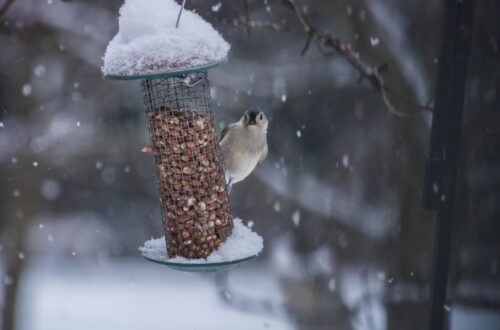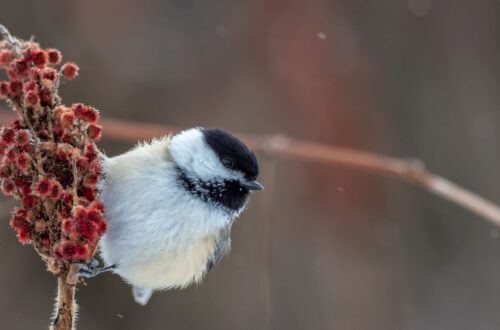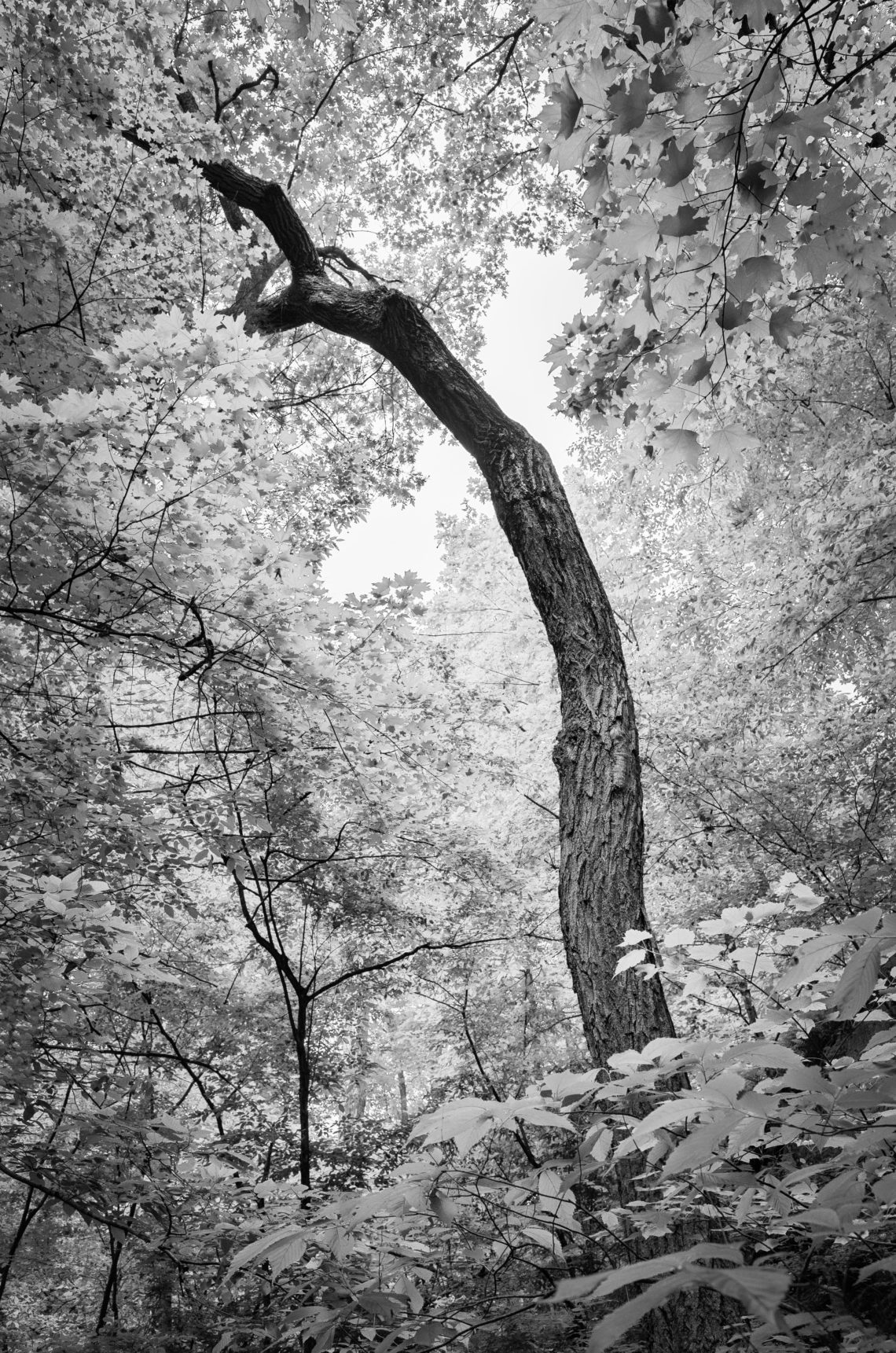
The Hiding Place
There is a very moving book published a few decades ago called The Hiding Place by Corrie ten Boom.1 It tells the story of a Dutch Christian family during WWII who hid and saved many Jews in their home in Haarlem. Their efforts were discovered and most of the family perished in concentration camps and prisons. Corrie lived to tell her story, a description of God as a refuge and a hiding place. Many times during their imprisonment, an actual hiding place was provided for Corrie and her sister Betsie. Mysteriously, things that were in plain sight, such as their Bible, went undiscovered. Their flea-ridden barracks in Ravensbruck concentration camp were avoided by guards who didn’t want to become infested, and thus they gave thanks for the gift of fleas whose presence gave them a private, hidden place to worship in desperate times. Although the sisters truly could not hide from the evil of the Nazis, they could and did hide inside God’s love. After the war was over, Corrie spent the rest of her life writing and travelling around the world, sharing her experiences and her messages of faith: God never deserts us despite all evidence to the contrary. God provides a hiding place of safety and security even in the worst imaginable situations.
One day late last spring, my husband and I happened upon a much less dramatic, poignantly tender version of a hiding place.
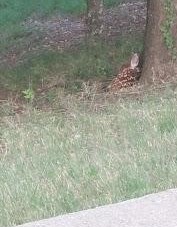
Do you see the little newborn fawn curled up at the base of the huge live oak tree, her back turned towards the camera with one ear sticking up? She is only about ten feet from the edge of our back patio. The shadow of the trees protected her from the warm sun. She was resting while Momma, nowhere to be seen, was out grazing. Although we stood very near to her, she only twitched her ears. We watched her for quite a while. As dusk settled in, my husband closed the nearby garage door. Even that loud, grating noise did not cause the young deer to move a muscle. She was waiting for Momma. Her camouflaging spots and the hollow place near the root of a tree were her protection. She was not startled or panicked even though humans were near.
Like Corrie’s, this little fawn’s hiding place was in plain sight. Like hers, it did not actually provide much protection. The tiny newborn was exposed to injury or even death while she rested there. One could be cynical and say that she did not know enough to be scared or that when she is older and wiser she will be much more self-protective, and those things would be true. But there is something to be said for this trusting, open time of life when a small fawn placed complete confidence in the care of her mother and nestled into a hiding place without fear.
Unlike this animal baby, I often want to guard myself from possible hurt. My own life cannot compare to the deep suffering of the ten Booms and millions like them, but when trouble does strike me, I do not often search for a safe hiding place. I look around me and see the world as a dangerous place and try to protect myself and my loved ones from hurt. Certainly, I cannot imagine the incredible faith and strength it took for the ten Booms to trust in God while enduring unspeakable evil. My own responses are much more self-protective. I steel myself against hurt and dangers that are real or that may never materialize. I move and react. I build barriers of cynicism or isolation. I look around me and see a lot of people who spend a great deal of time, effort and money trying to build a life that is separated from pain or hidden from danger. I often do the same.
There is a place where I can hide without fear that I am avoiding issues or creating a false sense of security. It is in the abiding Presence. While the Spirit does not promise physical protection, it does give me the assurance that I am not alone. Hide me in the shadow of your wings David prayed in Psalm 17 (NIV). That same shadow can cover me here and now. In that shadow, I can find refreshment and safety—perhaps not safety from physical harm, but safety from isolation and cynicism and hopelessness.
Corrie ten Boom’s faith remained strong amidst a horrifying, despicable situation. She remained deeply tethered to her hiding place, the abiding Love that does not desert even in desperate times. The tiny fawn outside my home was not resting in a safe place, either. She was hiding in plain sight, innocently vulnerable. Unlike the tiny fawn, I cannot rely on a child-like state, unaware of the harsh realities of this world. But I can still find a good place where I can be as vulnerable to God’s Presence as I am to threats and danger. It is a place shadowed not by bending live oak branches, but by Love that knows no barriers and can reach into the most hopeless situations. I took a final look at the fawn before the darkness obscured her. She stirred slightly and settled down once again to rest in the shadows of her hiding place.
1 ten Boom, C. (1971). The hiding place. Grand Rapids, MI: Chosen Books.
Reflection Questions:
Have you had a similar time when you experienced God’s protection in mysterious ways?
How would you characterize the idea of a hiding place as a way to grow your faith?
Intro Photo by Dave on Unsplash
Hiding Place Fawn Photo by Beth Hatcher


